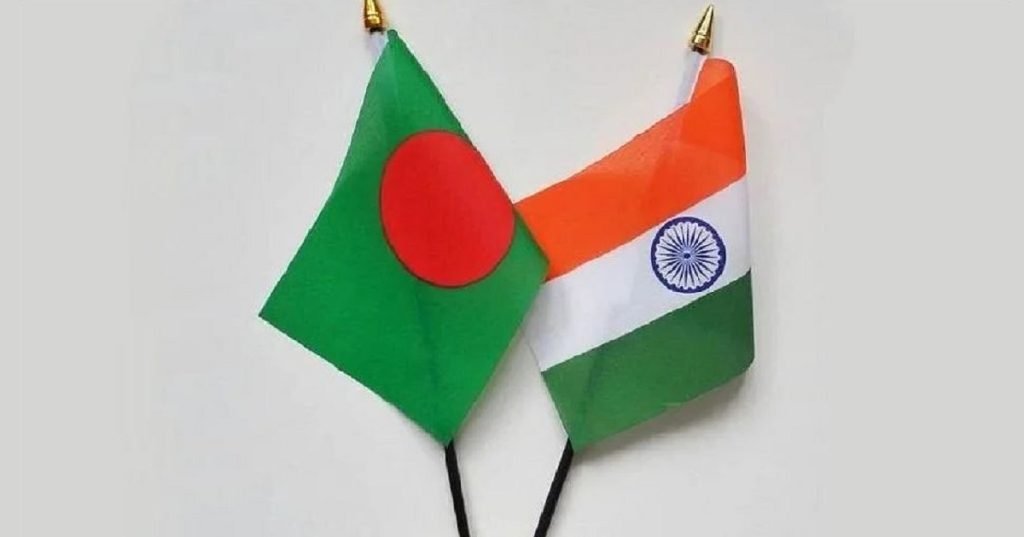“Our objective is to nurture and strengthen the relationship between Bangladesh and India, a joint effort undertaken by both governments.”
– Arindam Bagchi
India’s connection with Bangladesh stands as unparalleled among all its international relationships. The potential for growth in this partnership knows no bounds, transcending the conventional limits of international diplomacy. India’s commitment to the stability and prosperity of Bangladesh remains unwavering, underscoring the profound importance it attaches to its neighbor’s well-being. The principles of democracy, a cornerstone of Bangladesh, are greatly respected by India.
These sentiments were conveyed by officials from India’s Ministry of Foreign Affairs during a candid discussion with visiting Bangladeshi journalists in New Delhi on Monday, October 16. The exchange involved key figures, including Arindam Bagchi, the Spokesperson for the External Affairs Ministry, Smita Pant, Joint Secretary of the Bangladesh-Myanmar Division, and Navneetha Chakraborty, Director of the same division.
India’s stance on Bangladesh’s upcoming elections
When questioned about the upcoming national elections in Bangladesh and the involvement of Western nations, including the United States, as well as India’s role in this context, spokesperson Arindam Bagchi emphasized that the people of Bangladesh will ultimately determine their fate.

In response to another query, Bagchi underscored, “Our relationship is with Bangladesh, with its people. It’s not a matter of political parties. Our objective is to nurture and strengthen the relationship between Bangladesh and India, a joint effort undertaken by both governments.”
Regarding the caretaker government system in Bangladesh, he noted that such a system does not exist in the Indian constitution, and thus, it is not practiced in India. He suggested that the approach adopted in Bangladesh, as outlined in their constitution, will guide their actions.
In reference to Bangladesh’s relationship with China, Bagchi maintained that India refrains from passing judgment on this matter, asserting that it is a sovereign decision for Bangladesh. He stressed that the bond between Bangladesh and India is unparalleled and cannot be compared to any other country.
Addressing rumors that India opposed Bangladesh’s non-membership in BRICS, Bagchi dismissed them, stating that those who spread such information misunderstand the BRICS expansion process. He reaffirmed India’s support for Bangladesh’s progress, exemplified by Bangladesh’s special invitation to the G-20 summit in New Delhi.
India-Bangladesh Relations
Currently, India is involved in 46 ongoing projects with Bangladesh as a development partner, complemented by 64 smaller investments
Smita Pant underscored the remarkable strides made in the Bangladesh-India relationship, particularly in areas like security, communication, and development assistance over the past seven to eight years. The progress has been steady, sometimes moving at a measured pace and at other times surging ahead. Currently, India is involved in 46 ongoing projects with Bangladesh as a development partner, complemented by 64 smaller investments.
Highlighting India’s significant contributions to communication projects between the two nations, Pant noted the importance of initiatives such as the Chilahati-Haldibari rail link and rail and river connections with Tripura. The development sector has witnessed substantial investment from India in recent years.
Pant acknowledged the deep-rooted ties between Bangladesh and India, stemming from the historic 1971 liberation war, stating, “Even the sky cannot set the limit for this relationship.” She emphasized that India’s development assistance continued even during the challenging times of the Covid-19 pandemic.
Notably, Smita Pant mentioned the steps taken to enable Bangladeshi entrepreneurs to utilize India’s Calcutta and Delhi airports for exporting goods to third countries, highlighting the commitment to facilitating trade.
In terms of fostering people-to-people relations, Pant disclosed India’s efforts to simplify travel for Bangladeshi visitors, with the introduction of Taka-Rupee cards, eliminating the need to carry dollars for travel to India. Furthermore, India is placing a heightened emphasis on innovation, green energy, and technology.
Additionally, Pant announced India’s intent to increase scholarships for Bangladeshi students, recognizing the significance of educational exchanges between the two countries.
Emphasizing the importance of Bangladesh’s stability, Pant highlighted the developmental synergy between Bangladesh’s investments in North East Indian states and their reciprocal growth.
Regarding Indian visas for Bangladeshis, Pant reassured that although recent visa issues were temporary, the situation would soon return to normal, highlighting the ongoing people-to-people connections.
Conclusion
The relationship between India and Bangladesh is marked by an unwavering commitment to mutual growth, democracy, and prosperity. These discussions between key officials from India’s Ministry of Foreign Affairs and visiting Bangladeshi journalists in New Delhi underscore the profound importance of this unique partnership. As the two nations continue to strengthen their bonds in various sectors, including security, communication, and development assistance, it is evident that the sky is not the limit to what they can achieve together. The future holds promising prospects for both countries, guided by the principles of democracy and a shared commitment to innovation, green energy, and technology. With India’s dedication to the stability of Bangladesh and the deep-rooted friendship between these two nations, their collaboration is set to create a bright future for the region and beyond.


